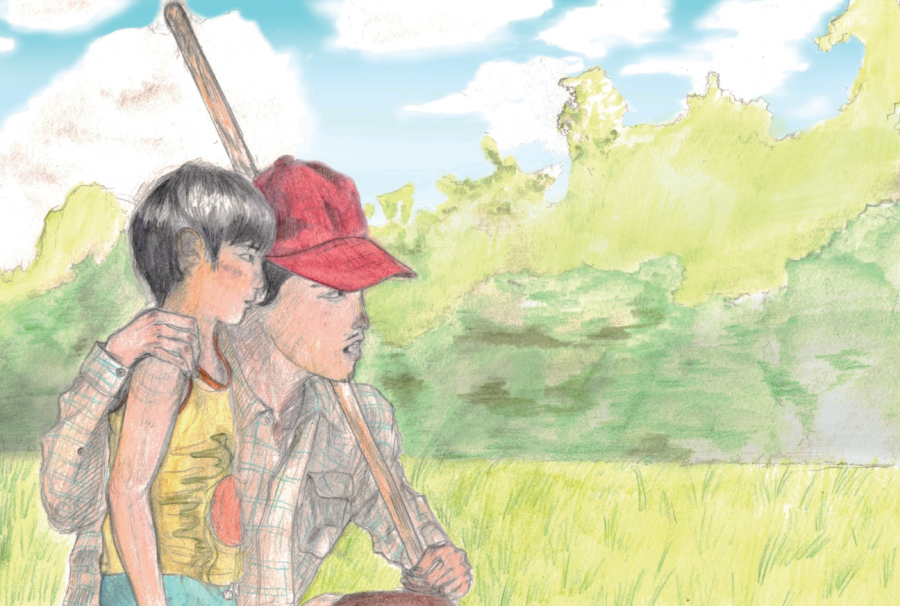‘Minari’ sows seeds for greater diversity
In his semi-autobiographical film “Minari,” writer-director Lee Isaac Chung skillfully tackles and meaningfully discusses the subject of immigration with varying levels of assimilation and childhood nostalgia.
The film follows the Yi family, first-generation Korean-Americans who, after immigrating from South Korea to California, move to rural Arkansas and struggle to find their place. Father Jacob Yi, played by actor Steven Yeun, decides to move in hopes of owning enough land to farm Korean crops, much to the annoyance of his wife Monica Yi, played by actress Han Yeri. The couple deals with marital problems soured by Jacob’s ambition.
Their two children, Anne and David Yi, are played by actress Noel Cho and actor Alan S. Kim. David struggles to have a normal childhood as he fights against his heart murmur. He is prohibited from running in the fields because his heart might stop at any moment and is told by Monica to pray to see heaven at bedtime.
“Minari” won a Golden Globe for Best Foreign Language Film and was nominated for six Academy Awards. Actress Youn Yuh-Jung received an Academy Award for Best Supporting Role as Monica’s mother Soonja. Soonja meets the kids for the first time when she immigrates from South Korea to Arkansas because of concerns over David’s condition. Her portrayal of a caring but fearless grandmother brought liveliness to the film. Youn performed with playfulness, authenticity and gentle humor, which was demonstrated when she teases the children, tenderly speaks to the family and provides words of wisdom without seeming like she’s preaching.
The most compelling storyline is the development of Soonja and David’s relationship, which displays the difference between their cultures and how the characters grow through their interactions. In the beginning, David claims she shouldn’t swear or smell “like Korea” to be a proper grandmother. David sees himself as American, balking at the prospect of consuming Soonja’s Korean herbal beverage to combat his heart murmur, but learns to appreciate his grandmother’s culture when she teaches him how to play a Korean card game that he later shares with a friend. Despite his initial rejection of her, Soonja demonstrates unconditional love and faith, calling David strong whereas other family members think his condition makes him weak.
While many scenes are full of color, the coverage of the parents’ factory jobs is monotonous, which detracts from the story. Monica strives to improve at her job, which is inspiring but not captivating in terms of storytelling. Jacob performs his job out of economic necessity while preferring to farm outside of work hours. His pursuit for personal success while neglecting the desires of his family is a tired trope, thankfully reinvigorated by Yeun and Han’s emotional performances of the struggle over whether to choose each other or their aspirations.
Simple cinematography captures the family’s experiences and allows the beauty of the fields and creek to shine through. This style causes the film to seem uncomplicated, perhaps even dull, but “Minari” proves to have greater complexity with the symbolism later developed.
Childhood nostalgia, woven throughout the film, is elevated by composer Emile Mosseri’s subtle soundtrack. The music never overpowers or distracts, allowing viewers to focus on the story.
The fact that the majority of the film is in Korean may be a deterrent to some, but the English subtitles are easy enough to follow that the language barrier does not detract from the viewing experience.
The way “Minari” illuminates a Korean-American family’s immigrant experience, specifically its seemingly simple everyday struggles, is refreshing to see portrayed on the big screen. A story on an immigrant family isn’t groundbreaking in itself but increased exploration of diversity is a step in the right direction to promote greater variety in stories for the American audience.


